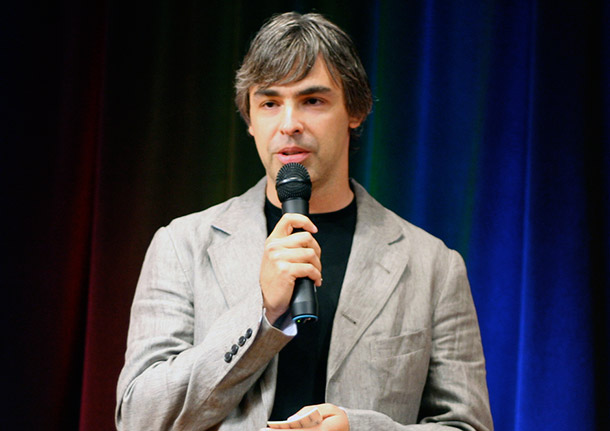Until very recently, taking on grand challenges was off-limits for most people. Historically, going big meant huge capital outlays and multi-decade bets.
It meant staging personnel in dozens, sometimes hundreds, of countries. Assembling the astounding array of talent required an infrastructure for hiring, retaining and retraining it as technology evolved. But with the wealth of crowdsourcing tools available to today’s entrepreneurs, the entire playing field has shifted.
Technology lets companies to scale up in size as never before. Small groups can have huge impacts. A team of passionate innovators can alter the lives of a billion people in an eyeblink.
A quartet of entrepreneurs have harnessed technology to build multibilliondollar companies that forever changed the world: Virgin Group founder Richard Branson, Amazon CEO Jeff Bezos, Tesla Motors CEO Elon Musk and Google CEO Larry Page.
Each of them mastered a rarely discussed skill fundamental to bold pursuits and enterprises with exponential growth: the ability to think at scale.
Based on my in-depth interviews of these men and other sources, I have distilled eight strategies for business success:
1. Take risks but mitigate them.
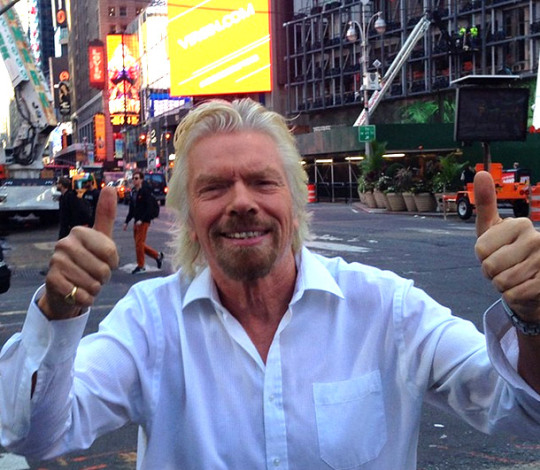
Just about everything Sir Richard Branson has done has involved taking brazen risks. But he also runs his Virgin Group empire like a competitive ecosystem, letting some companies live, others die and always ceaselessly experimenting.
He is quick to rapidly iterate his ideas and quicker to shut down a failure. While Branson is known to have started tons of companies, he has also shed ones that didn’t work for him.
Branson understands that risk mitigation is critical.
“It looks like entrepreneurs have a high tolerance for risk,“ he told my co-author Peter H. Diamandis in an interview for our just-published book, Bold. "But, having said that, one of the most important phrases in my life is ‘protect the downside.’ It should be one of the most important phrases in any businessperson’s life.”
It was a "big, bold move going into the airline business,” Branson said of his launch of Virgin Airlines after initially starting Virgin Records. But Boeing allowed for him to “give the plane back after 12 months.”
“That meant I could put my toe in the water, I could see whether people liked the airline,” he said. “But if it didn’t work out, it wasn’t going to bring everything else crashing down.”
Added Branson: “I’d be able to look my record company bosses in the eye and we’d still be friends because they’d still have jobs.”
“Protecting the downside is critical,” Branson said. “Make bold moves but make sure to have a way out if things go wrong.”
Related: Richard Branson on Taking Risks
2. Rapidly iterate and experiment until things are right.
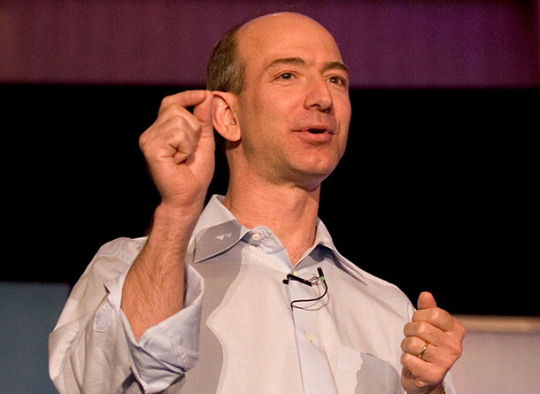
Jeff Bezos is a busy man. He isn’t interested in small shifts in direction or polite progress. He wants to effect change on a massive scale, tapping customer-centric thinking for the long term.
The Amazon CEO also understands that the only way to really succeed is via experimentation. He knows that this approach will occasionally produce spectacular mistakes. "Failure comes part and parcel with invention. It’s not optional,” he wrote in a 2014 Amazon shareholder letter
Staff at his company “believe in failing early and iterating until we get it right,” Bezos added.
“When this process works, it means our failures are relatively small in size,” he wrote. “Most experiments can start small.”
“And when we hit on something that is really working for customers, we double down on it with hopes to turn it into an even bigger success,” Bezos said.
3. Be driven by passion and purpose.
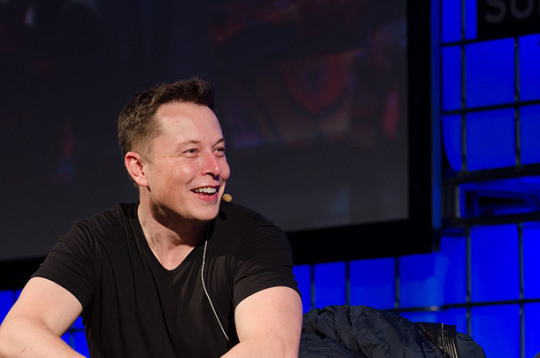
Nothing is more important than passion and purpose for Elon Musk, who also heads up Space Exploration Technologies and SolarCity.
“I didn’t go into the rocket business, the car business or the solar business thinking this is a great opportunity,” Musk told me in an interview.
“I just thought, in order to make a difference, something needed to be done. I wanted to have an impact. I wanted to create something substantially better than what came before.”
4. Think long term.
Google X chief Astro Teller told Wired how he imagined wheeling a time machine into Google CEO Larry Page’s office, plugging it in to demonstrate that it worked only to have his boss ask why it needed a plug and wouldn’t it be better without having to draw from an electric power source?
This was to illustrate Page’s focus on 10x thinking, which Teller has referred to as making something 10 times better.
For Page, the answer for him and Googlers always sits at the intersection of long-term planning and customer-centric thinking.
"We always try to concentrate on the long term,” Page told me in an interview. “When we first looked at YouTube, people said, ‘Oh, you guys are never going to make money with that, but you bought it for $1.4 billion. You’re totally crazy.’”
“We were reasonably crazy, but it was a good bet,” Page said, noting YouTube’s revenue growth.
Added Page: “Our philosophy is that the things that people use often are really important to them and we think that over time, you can make money from those things,”
5. Emphasize a customer-centric approach.
Branson’s fiery devotion to fun is relayed to his dedicated clientele and fervent fans. The net effect is a business strategy based on experimental customer-centrism. If Branson thinks a particular service might be beneficial to his customers (and fun), he tries it out.
This is why Virgin Atlantic offers free seat-back TVs, onboard massages, a glass-bottomed plane and stand-up comedians.
“Unless you’re customer-centric you might be able to create something wonderful, but you’re not going to survive,” Branson told me.
“It’s about getting every little detail right. It is running your airline like you would an upscale restaurant – the kind where the owner is there every day,” he added.
“Virgin Atlantic started out with one plane,” Branson said. “On paper, we should not have survived. But because we were customer-centric, people went out of their way to fly us.”
6. Broaden the view by tracking probabilities.
Thinking in probabilities (a business has, say, a 60 percent chance of success) rather than deterministically (if I do A and B, then C will happen) doesn’t just guard against oversimplification. This type of thought process protects an entrepreneur against the brain’s inherent laziness.
Musk strives to broaden his view by thinking in probabilities.
“Outcomes are usually not deterministic,” Musk told Kevin Rose in a 2011 interview. "They’re probabilistic.”
Added Musk: "The popular definition of insanity – doing the same thing over and over and expecting a different result – that’s only true in a highly deterministic situation.
“If you have a probabilistic situation, which most situations are, then if you do the same thing twice, it can be quite reasonable to expect a different result,” he concluded.
Related: Google, Fidelity Invest $1 Billion in SpaceX to Spread Internet Access Across the Globe
7. Be a rational optimist.
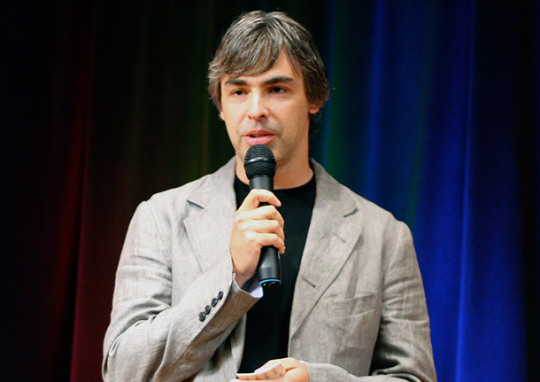
Larry Page famously said in a keynote address to Google’s I/0 conference in 2013, “Being negative is not how we make progress.”
“I’m tremendously optimistic,” he said. “I’m certain that whatever challenges we take on, we can solve with a little bit of concerted effort and some good technology. And that’s an exciting place to be.”
Page observed that this meant his company’s “job is really to make the world better” and that the world needs “more people working on this. We need to have more ambitious goals.”
Said Page: “The world has enough resources to provide a good quality of life for everyone. We have enough raw materials. We need to get better organized and move a lot faster.”
Related: Google Co-Founder Larry Page to Step Back From Duties to Focus on ‘Bigger Picture’
8. Rely on fundamental truths.
Musk urges entrepreneurs to seek direct, blunt, critical feedback from friends. “It’s not going to be easy, but it’s really important to solicit negative feedback,“ the type that "helps you recognize as fast as possible what you’re doing wrong and adjust course,” he told me.
“That’s usually what people don’t do,” Musk said. “They don’t adjust course fast enough and adapt to the reality of the situation.”
Often, he says, people do things because “others are doing them” or they spot a trend. They see "everyone moving in one direction and decide that’s the best direction to go.”
At times “this is correct, but sometimes this will take you right off a cliff,” Musk said.
Considering fundamental truths “protects you from these errors,” Musk concluded.
Related: The Billionaires Who Gained and Lost the Most Money in 2014

